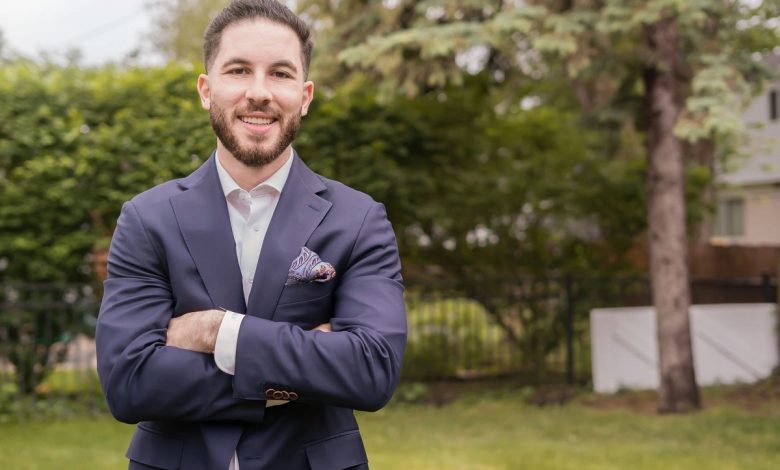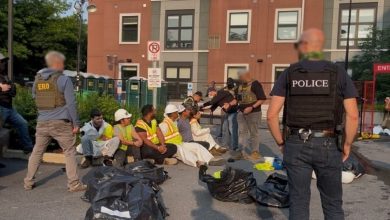Arab-American Mayors Sweep Michigan Elections: Hammoud, Al-Harbi, and Beydoun Secure Historic Wins
From Dearborn to Hamtramck, Arab-American leaders strengthen representation and community leadership across Metro Detroit.

The 2025 Michigan municipal elections marked a historic milestone for Arab-American representation, as three prominent leaders — Abdullah Hammoud in Dearborn, Adam Al-Harbi in Hamtramck, and Moe Beydoun in Dearborn Heights — secured decisive victories in their respective cities.
Their wins not only reaffirm the growing influence of Arab and immigrant communities in Metro Detroit but also signal a new chapter in local governance, where diversity, community service, and inclusive leadership are reshaping the political landscape of Michigan’s suburbs.
1. Abdullah Hammoud – Dearborn, Michigan
Abdullah Hammoud serves as the Mayor of Dearborn, Michigan, having first been elected in 2021. In 2025, he was re-elected for a new term during the city’s mayoral election held on November 4, 2025.
His opponent in the 2025 race was Nagi Almudhegi. The election was held directly without a primary, as only two candidates had filed to run.
Election Results:
The vote took place on November 4, 2025, with Hammoud emerging victorious. His position as the incumbent mayor gave him a clear advantage.
Significance:
Hammoud’s re-election reflects the continued rise of Arab-American and immigrant representation in local leadership—especially in Dearborn, where Arab Americans make up a large portion of the population. The results suggest that voters value stability and experience, particularly amid challenges related to public infrastructure and city services.
The candidacy of Yemeni-American Nagi Almudhegi also underscores growing diversity in political participation and competition across Michigan’s suburbs.
Challenges:
Hammoud now faces the task of turning campaign promises into action—improving infrastructure, tackling flood problems, enhancing city services, and easing financial pressures on residents.
Previous controversies or disputes over statements—such as a September 2025 disagreement involving a Christian clergyman during a city council meeting—may affect perceptions among some groups. Maintaining unity among residents of all racial and religious backgrounds will be essential moving forward.

2. Adam Al-Harbi – Hamtramck, Michigan
Adam Al-Harbi, of Yemeni descent, lives in Hamtramck—a small but highly diverse city home to Arab, Yemeni, Bangladeshi, and Polish-American communities.
He participated in the August 5, 2025 mayoral primary.
Election Results:
In the primary, Al-Harbi received 1,931 votes—around 53.62% of the total 3,829 ballots cast. Some media outlets later described his performance as a “decisive victory,” reporting that he won around 76% of the vote in the general election. The final election took place on November 4, 2025, confirming his win.
Significance:
His victory marks an important milestone for Yemeni-Americans and the broader Arab-American community, demonstrating that leadership opportunities are increasingly accessible to immigrants and their descendants.
In a small, diverse city like Hamtramck, his success shows that community service and local engagement can mobilize voters and drive change.

Challenges:
After a strong primary win, Al-Harbi must now maintain momentum and turn his promise of “positive community initiatives” into concrete outcomes. Hamtramck faces long-standing issues such as infrastructure maintenance, budgeting, and transparency—areas that the new mayor will need to manage carefully. Building coalitions across Hamtramck’s ethnic groups—Yemeni, Bangladeshi, Polish, and others—will be key to effective governance.
3. Moe Beydoun – Dearborn Heights, Michigan
Moe Beydoun previously served on the Dearborn Heights City Council and was elected as its President. In February 2025, he announced his candidacy for mayor.
Election Results:
In the August 5, 2025 primary, Beydoun won about 4,163 votes (≈58.5%) out of 7,124 ballots—well ahead of his nearest rival.
After the resignation of former mayor Bill Bazzi (appointed as U.S. Ambassador to Tunisia), Beydoun was appointed interim mayor on October 14, 2025, serving until December 31, 2025. Following the November 2025 general election, his victory was confirmed, beginning his first full term as mayor.
Significance:
Beydoun’s win strengthens Arab-American leadership in the Detroit suburbs and highlights growing diversity in local politics. Having served within city government, he enters office with firsthand knowledge of local issues and priorities.
Rising from council president to interim mayor to elected mayor reflects voters’ trust and confidence in his leadership.
Challenges:
He must now translate campaign commitments into tangible results—tackling infrastructure, flooding, and financial management while fostering inclusivity among Dearborn Heights’ diverse residents. Building an early record of effective performance will enhance his credibility and set the foundation for future terms.
Across all three Michigan cities—Dearborn, Hamtramck, and Dearborn Heights—Arab-American and immigrant leaders are not only running but winning key local positions. Their victories mark a shift from symbolic representation to real political power.
However, these wins also bring new responsibilities: turning promises into results, promoting transparency, and ensuring inclusive governance. The 2025 elections highlight how immigrant and Arab-American communities have become central players in shaping the political future of Metro Detroit.



